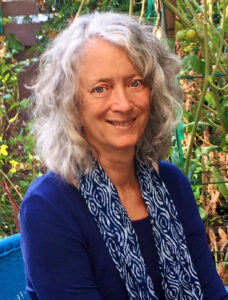
by Connie Hernandez, ND

These days, when I ask my patients about their health, they’re likely to check an app on their phone or wearable medical device.
“When was your last menstrual period?” “I don’t know – let me check the app.”
“What’s your typical blood pressure?” “I don’t know – let me check my phone.”
Our devices can be fun and fascinating. They can even be quite helpful. However, I can’t help but wonder about their accuracy.
My misgivings began when I checked an iPhone app that tells me how far I’ve walked.
To satisfy my curiosity, I compared the reading on my phone with Dr. Marcel’s. We’d started and finished together, yet the app said Marcel had walked a quarter of a mile farther.

When I checked the distance against our car’s odometer, it revealed yet a different mileage.
I’m not all-in with wearable tech, yet I was curious to see if there might be an app that could help with my perpetually troubled sleep.
I found the Oura ring, which claimed to have impressive technology and was comfortable to wear. The ring tracks the time it takes you to go to sleep, how many times you awaken in the night, and how many minutes or hours you’ve spent in deep sleep, light sleep, REM sleep, and more.
Whenever I awoke at night, I checked the clock (something sleep experts tell us not to do) and found that the ring agreed with my experience.

I then tried a wristband that promised to track the same data. Frustratingly, the wristband didn’t agree with the ring about levels of sleep, or even the time spent sleeping.
Because Dr. Marcel was experimenting with the wristband, too, I borrowed his, only to find that the data from all three devices differed considerably.
I also found that the percentage of time in deep sleep, REM sleep, and light sleep didn’t seem to make a difference in how I felt. The single correlation with my feelings of well-being was with how many times I awoke during the night. More awakenings resulted in feeling lousy. With less awakenings I felt better. (I didn’t need the ring to tell me this!)

I did find a surprise benefit in what the ring was telling me. Sleep researchers claim that we can have a thought, fall asleep, and wake up with the same thought. I found this hard to believe, but I did find that the data from my ring were consistent with this idea.
I would be thinking that I’d spent hours awake, tossing in bed and checking the clock, and the ring said that I was indeed awake when I checked the clock, but that I was in various stages of sleep between the times I’d glanced at the clock.
This told me that the stories I’d been telling myself about not sleeping at all on certain nights were false!
Strangely, realizing that my mind was lying to me, and that my brain was better protected by sleep than I thought, made me feel a lot better on waking and through the day. And the quality of my sleep improved, too.
What do my experiences tell us about wearable tech?
If you’re wanting to gather reliable, objective data about yourself, I think the message is: buyer beware, have fun, and keep being curious.
Maybe we haven’t arrived at our final destination of “Star Trek medicine,” but I think we’re moving in the right direction.
For information about the services we offer at Pacific Naturopathic, please give us a call at 650-961-1660, use the convenient Contact Form to get in touch, or follow the link to: Consultations – Pacific Naturopathic. Thank you!
